As announced some time ago, NINO is to enter into a closer cooperation with Leiden University and the National Museum of Antiquities (Leiden). NINO’s curatorium (Board of Governors) has decided to restructure NINO into a research institute, differently organised from the current institute. This autumn we are working hard at the preparations; the changes will take effect starting from January 2018.

This text is available as a pdf file
The NINO library will be put on loan to Leiden University Library, and form a recognisable part of its planned Middle Eastern Library. The acquisition budget will be doubled and our current library staff members will be employed by Leiden University.
NINO’s Böhl Collection of cuneiform texts will be put on loan to the National Museum of Antiquities, that will take care of preservation and rapid digitisation. The NINO publications will be continued also in cooperation with the Museum.
The new NINO research institute will be firmly rooted in our well-known NINO library, which is to retain its excellent collection and accessibility, as well as its visibility within Leiden University Library. A considerable annual budget will be made available for research activities and fellowships.
The curatorium has asked Caroline Waerzeggers (Professor of Assyriology at Leiden University) to function as quartermaster of the institute-to-be-established. Olaf Kaper (NINO curator, and Professor of Egyptology at Leiden University) is her direct contact within the NINO curatorium. Carolien van Zoest (NINO secretary and publications officer) lends support.
The NINO research institute will remain firmly rooted in our library, which is to maintain its excellence and visibility within Leiden University Library. Anita Keizers (NINO librarian) is carefully preparing the transition to UBL, aided by Erik Jan Zürcher (NINO curator, and Professor of Turkish language and culture at Leiden University). They have already made major progress in their arrangements with Leiden University’s head librarian Kurt De Belder.
Our Böhl Collection of cuneiform texts is our most important collection. NINO further keeps a number of collections of a.o. photographic and archival materials. Curators Bert van der Spek (former Professor of Ancient History at VU Amsterdam) and Wim Weijland (director of RMO) are handling the issue of NINO’s collections.
The NINO publications (monographic series PIHANS, Egyptological Publications, Achaemenid History; journals Bibliotheca Orientalis, Anatolica) are an important part of the new research institute’s international appearance. Curators Bert van der Spek and Wim Weijland are restructuring the publishing house, again supported by Carolien van Zoest.
These four executive committees maintain regular contact with Karel van der Toorn (president-curator of NINO).
The NINO staff members and curators charged with preparing NINO’s transition are receiving input from three advisory committees consisting of local colleagues, researchers and students. At the information meeting in July three advisory committees have been formed of library users, collection users, and interested parties in the research institute. The advisory committees have meanwhile all formulated a first version of their visions.
The four executive committees are making preparations for a new organisational structure, to be instated from 2018 onwards, while paying close attention to advice given by the users’ committees and other interested parties.
Leiden University is meanwhile progressing on the Humanities Campus Project, a large-scale redevelopment of the Faculty of Humanities’ existing building complex at Witte Singel in Leiden. The building that now houses NINO and (parts of) LIAS will be renovated a few years from now; this means that our library, collections and offices will then have to move out. New spaces for NINO are projected in a different part of the Humanities complex, namely the buildings south of Leiden University Library (we are currently located north of the main library). At this location NINO will be housed together with the Leiden Institute for Area Studies (which hosts the department of Assyriology, Egyptology, and Hebrew & Aramaic Studies), the Africa Study Center (with its library) and KITLV. The interiors of the buildings south of the main University Library will be entirely redesigned to meet the needs of the new occupants, and will be physically connected to the main University Library building. The renovation is planned to be complete in 2021, at which time NINO and the other institutes mentioned will move in. Here the NINO library will become a recognisable, separate element in the Middle Eastern Library maintained by UBL.
Until 2021 the NINO library and offices will remain where they are now. The NINO librarian and assistants will be employed by UBL starting from 2018, with the provision that they will remain in charge of the NINO library books. As Leiden University doubles the acquisition budget, new acquisitions will enter the NINO library as shared property. It has not yet been decided when, and under which specific conditions, the Böhl Collection will move into the Museum of Antiquities; continued accessibility of the collection for students and researchers is an important part of the agreement.
A detailed update in Dutch is also available on our website.
